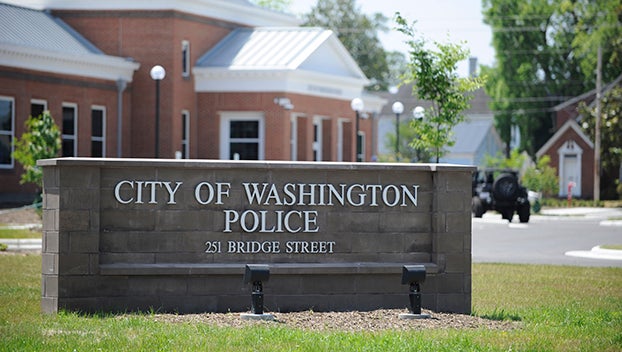‘School choice’ provided
Published 1:13 am Sunday, August 7, 2011
Students attending four public schools in Beaufort County will be able to attend another school during the upcoming school year because of the poor performances of three of those schools on federally mandated tests, a local school official said.
Students attending Snowden, Eastern, John Cotten Tayloe and John Small elementary schools will be able to choose to attend another school because test-takers at those schools missed federal targets on end-of-grade or end-of-course math tests under the Elementary and Secondary Education Act, according to Greg Singleton, executive director for federal programs and student support at Beaufort County Schools.
Singleton made the announcement late last week at a meeting of a school-board committee tasked with overseeing curriculum and personnel matters.
Students in each of the four affected schools will be given choices for the 2011-2012 school year. They may stay in the same school or attend one of two alternate schools where students performed better on the tests, a process known as “school choice,” Singleton said.
Students at John Small Elementary School who qualify for free or reduced lunches also may sign up for free tutoring during the coming school year, he said.
Students in kindergarten through fourth grade at Snowden Elementary School may opt to attend either Chocowinity Primary School or Northeast Elementary School. Students in the fifth through eighth grade may opt to attend Chocowinity Middle School or Northeast Elementary School, Singleton said.
Students at Eastern, John Cotten Tayloe and John Small elementary schools may opt to attend Northeastern or Bath Elementary School, he said.
The alternate schools were identified — by a committee — based on the size of the school’s student body, geographic location and space available at the school, Singleton said.
Students who choose to attend another school through school choice will be provided transportation to the other school free of charge by the school system, he said.
Singleton said parents of most children attending schools that faced sanctions in the past decided not to make a change.
“Parents have the option of their child remaining at the school, and that is what most of them will decide to do,” he said.
Snowden and John Small elementary schools have faced school-choice sanctions before.
This is the first time since the law, known as No Child Left Behind, was enacted in 2002 that John Cotten Tayloe and Eastern elementary schools have faced school-choice sanctions and that four of the county’s public schools have faced sanctions in the same year, Singleton said.
Parents of children attending the four affected schools will be notified of their choices by mail before Thursday and have until Sept. 2, about a week after the new school year begins, to choose another school, he said.
Parents will be able to identify a first choice and a second choice between the two options given to them, and their children will be assigned to a school based on space available and the order in which the request is received, he said.
No Child Left Behind requires states to annually administer standardized tests. School districts and individual schools that receive Title I federal funding must make “adequate yearly progress” in those test scores or face sanctions.
Schools receiving federal Title I funds and not making AYP in a given subject area for two years in a row or more face a cascading sequence of consequences as a result. These consequences include having to offer tutoring services to eligible students, requirements for public school choice to students in identified schools and school restructuring.
Snowden, John Cotten Tayloe and John Small elementary schools failed to meet adequate yearly progress in mathematics, and because of that, face sanctions for the upcoming school year.




